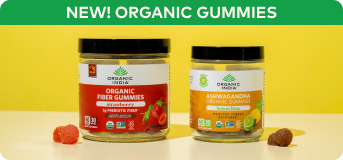

Section

Back
Fiber Without Bloating: A Gentle Guide to Gut Health
11/25/2025 | Written by Kristen Boye
Psyllium preprobiotic
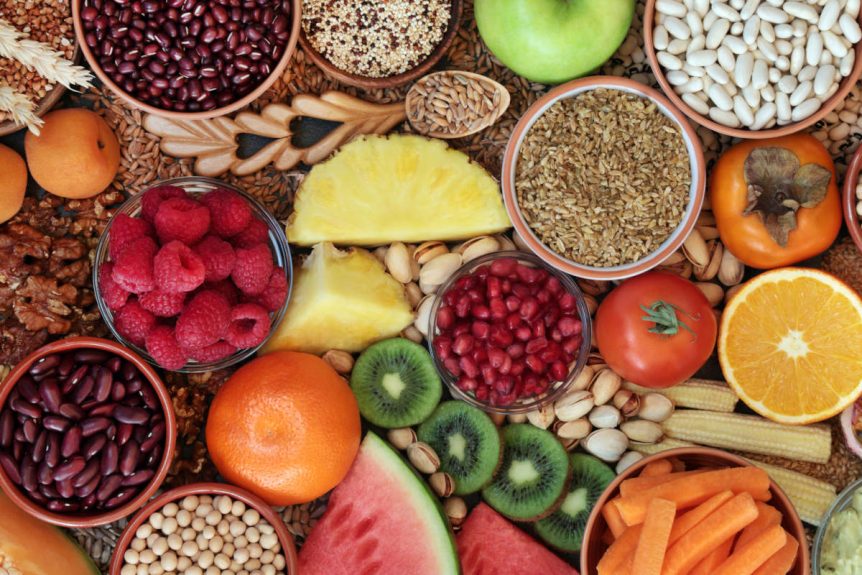
So, you’re trying to eat more fiber without the bloating and farting? You’re not alone.
Given that only 5% of men and 9% of women in America get enough fiber, this is a common and worthy goal.
The good news is that getting your recommended daily allowance of fiber can be a total cinch, and doesn’t have to cause bloating, gas or stomach upset.
The key lies in starting slowly, selecting the right types of high-fiber foods and supplements, and consuming them in such a way to avoid digestive upset.
Why Fiber is Essential (And Why It Can Cause Gas and/or Bloating)
Fiber is a type of carbohydrate found mainly in plant-based foods that passes through the digestive tract without being digested.
It plays a critical role in digestive function, blood sugar regulation, appetite regulation and satiety, cardiovascular function, metabolic function, gut health and regularity.
There are two primary types of dietary fiber, both of which are essential for good health:
- Soluble fiber: This type dissolves in water, creating a gel-like substance that delays digestion. Some common sources of soluble fiber include: flaxseeds, chia seeds, and psyllium. It supports digestion as well as normal cholesterol.
- Insoluble fiber: This variety adds bulk to stool, helps move food and wastes along like a broom, and facilitates comfortable elimination. Common sources of insoluble fiber include whole grains, potatoes, green beans, and wheat bran.
Most plant-based foods contain both types of fiber, although one type may be more prominent.

The Digestive Benefits of a High-Fiber Diet
As mentioned previously, fiber is indigestible and therefore helps facilitate the transport and elimination of food and waste products, as well as helping regulate blood sugar and support overall metabolic function.
Fiber is also essential for normal elimination, and prebiotic fiber (a type of indigestible starch) ferments in the gut where it feeds beneficial microbes.
Without adequate fiber, the digestive system simply cannot do its job efficiently, which can result in stomach pain, constipation, and other digestive and gut health issues.
What Causes Bloating When You Increase Fiber Intake
The body is incredibly adaptable and will do its best to function optimally on a low-fiber diet.
Introducing more fiber, especially very quickly, forces the digestive tract to work in ways it hasn’t before, and can cause overwhelm.
A low-fiber diet can also cause gut health issues, leading to suboptimal digestion of fiber and other nutrients. For example, more fiber requires fermentation in the gut, which can lead to gas and bloating. This will lessen with time as the body adapts.
Bloating can also result from:
- Eating too much fiber without enough water
- Gut motility issues
- SIBO or other gut infections
- Food sensitivities or allergies, such as to wheat, gluten, or lectins
In most cases, bloating will cease as your body adjusts to the new diet.

Common Missteps: Too Much, Too Fast, Too Dry
So, how can you help your body adjust to a higher fiber diet faster? Avoid these common missteps:
Too much, Too Fast, Too Dry
The recommended daily fiber intake is 25-38 grams for people under 50 and 21-30 grams for people over 50. If you’ve been eating much less than that, it’s important to start slowly!
Start by adding a few fiber-rich foods, such as an apple and some berries, and switching to whole-grain bread, for example, and increase that amount slowly over a period of weeks.
There is no one-size-fits-all recommendation, so listen to your body and increase to tolerance. If you’re taking a fiber supplement, start with a quarter to half the dose, or check with your healthcare practitioner for individual recommendations.
It is also essential to increase your water intake! This helps attract and transport soluble fiber, preventing constipation, gas, and bloating.
As with increasing fiber, if you’ve been drinking very little water, increase the amount slowly, by a glass or two a day, until you’re up to at least eight glasses per day. Choosing water-rich, fiber-rich foods like fruits, berries, and vegetables will also help naturally prevent bloating.
Fiber Supplements vs. Whole Foods: Which Is Easier on Your Gut?
The best source of fiber is always whole foods like fruits, vegetables, and whole grains. However, fiber supplements can also help ensure you meet your daily targets.
Which is easier on the gut? It depends on the person, the food, and the supplement.
Typically, whole, high-fiber, and high-water foods will be gentlest on the stomach, but not for everyone. For instance, some people experience significant gas and bloating from consuming raw vegetables and fruits. This is partly due to higher levels of insoluble fiber in raw foods, which is more fibrous and can be harder to digest. It may also be related to a gut infection or food sensitivities, in which case a supplement would be preferable.
Non-stimulant, food-based fiber supplements provide a gentle, convenient source of gut-friendly fiber, especially when taken with enough water. The best choice for you depends on your fiber goals, lifestyle, and individual needs.
Related reading: Psyllium vs Chia vs Flax: Which Fiber is Best for You?
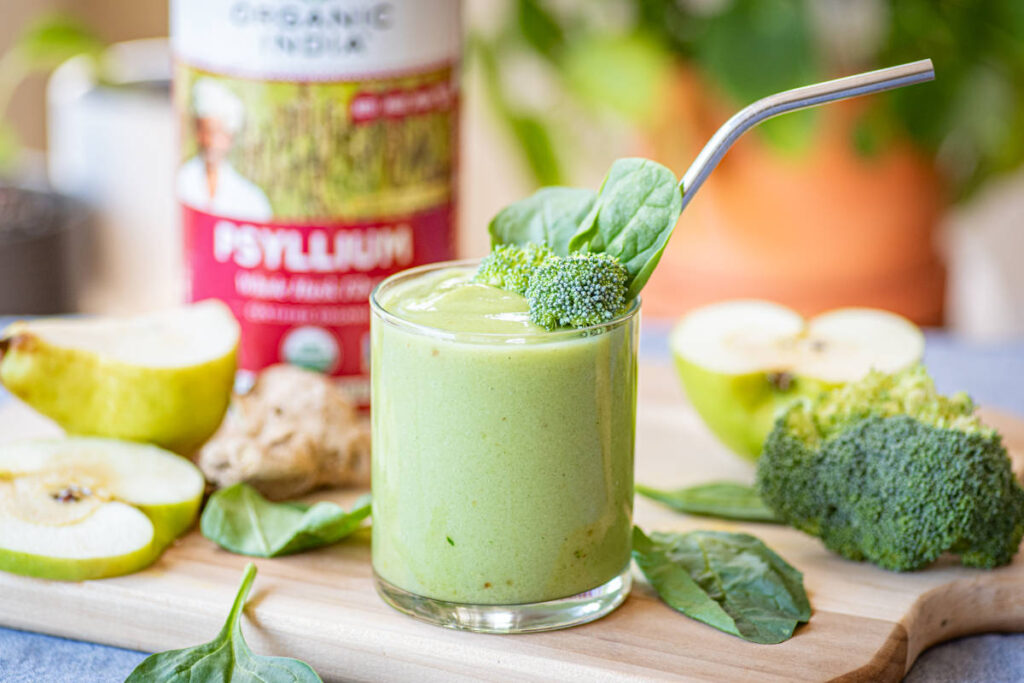
Pros and Cons of Whole Food Fiber Sources
The biggest pros of whole food fiber sources are:
- They offer a wealth of natural vitamins, minerals, nutrients and antioxidants
- Many contain natural water
- Many contain soluble and insoluble fiber
- They are inexpensive and easy to access
The only con of high-fiber whole foods is that not everyone digests them well, and it can take some experimentation to determine which foods may cause bloating and other unwanted symptoms.
When Supplements Offer a Gentler Experience
As mentioned previously, natural food-based supplements may offer a gentler source of fiber if the individual has food sensitivities, a gut infection, or another condition that limits their food choices or may cause constipation, as well as during postpartum recovery.
Natural fiber supplements can also come in handy during travel or times when we can’t eat as healthfully as we do normally.
Combining Both for Balanced Intake
If you eat plenty of fruits, vegetables and whole grains daily, you probably don’t need a fiber supplement.
However, combining natural fiber supplements with a healthy diet can help ensure you meet your daily fiber requirements.
Combining fiber supplements and whole foods is also helpful if you’re on a limited diet or cannot tolerate too many fruits and veggies, for example.
As always, supplements should not replace a healthy, whole foods diet but act as a fill-in for when you can’t meet your daily requirements.
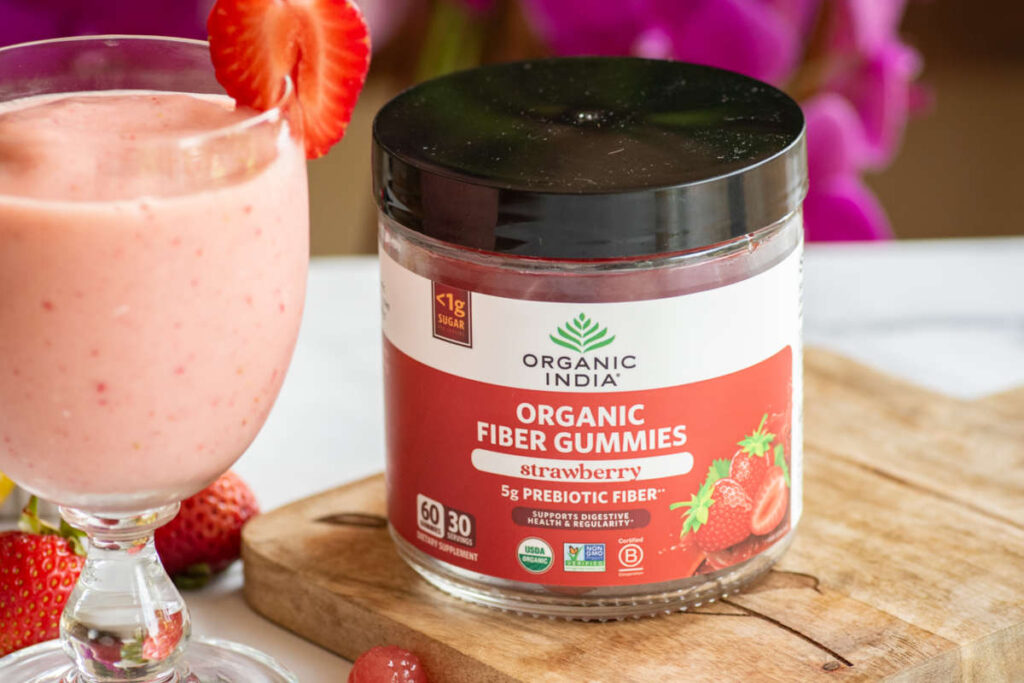
How to Increase Fiber Without Bloating
Here are a few more tips to help you avoid bloating as you slowly increase your fiber intake.
Hydration Is Non-Negotiable: Why Water Helps Fiber Move
As mentioned previously, water is essential for the movement and function of fiber in the digestive tract. Without water, soluble fiber becomes dry, leading to constipation, bloating, and discomfort. Start increasing hydration slowly, by adding a glass or two of water a day, then work up to eight glasses.
If you’re taking a fiber supplement, be sure to take it with a glass of water. Keeping a large water bottle or pitcher at your desk will help, as will mixing it with herbal teas and adding fresh fruit to your water.
Timing and Meal Pairing Tips for Better Tolerance
Instead of trying to get all, or most of your fiber at breakfast, try increasing intake throughout the day. This could mean including some fresh fruit at breakfast, an apple or banana for snack, some raw or cooked veggies at lunch, and a whole grain or potato with the skin on at dinner.
Spreading your intake out throughout the day will help the body gradually utilize the fiber, minimizing potential symptoms. And be sure to pair water-rich foods, such as melons, apples, berries, grapes, celery, cucumbers, lettuces, and tomatoes, with high-fiber foods, like whole grains, to help facilitate fiber transport and prevent bloating.
Cooked vs. Raw: Making Fiber Easier to Digest
Raw fruits and veggies are excellent sources of fiber, but can also be difficult for some people to digest. Cooking helps gently break down tough insoluble fibers, making them softer and easier to digest, without decreasing overall fiber content.
This works for fruits, vegetables, and whole grains, and can be an excellent way to help make fiber easier to digest. As your body adjusts, aim for a good balance of raw and cooked fiber-rich foods.
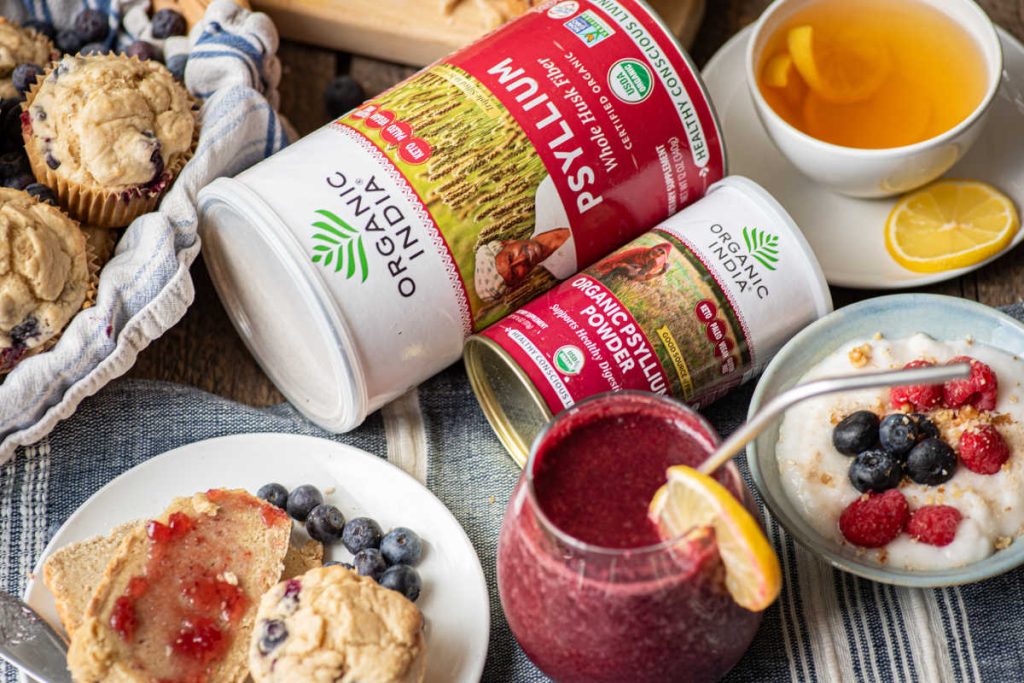
Lifestyle Habits That Support a Smooth Transition
The gradual introduction of high-fiber foods and hydration isn’t the only factor in a smooth transition. Here are a few more things you can do to support digestive health and prevent bloating as you introduce more fiber into your diet.
Movement and Mindfulness: Supporting Gut Motility
Research has shown movement is critical to normal digestive function and can help support a healthy gut microbiome. As we move our bodies, it naturally stimulates digestion and elimination, making the whole process easier and more efficient.
Mindful eating, the practice of eating slowly and paying attention to the food’s various attributes such as taste, smell, texture, as well as how you feel, has also been shown beneficial for reducing minor digestive upsets as well as supporting overall gut health.
Fermented Foods and Probiotics: Balancing the Microbiome
Probiotics are often recommended alongside fiber, including prebiotic fiber, for supporting overall gut and digestive health. Naturally fermented foods, such as yogurt, kefir, and kombucha, are natural sources of probiotics, and cultured vegetables, sauerkraut, and kimchi provide probiotics plus natural fiber.
One exception is that those with specific gut health issues, such as SIBO, may find fermented foods cause gas and bloating, so check with your healthcare practitioner for individual recommendations. As with adding extra fiber, start slowly by adding small amounts of probiotics or probiotic-rich foods to your diet for best results.
Stress and Digestion: The Overlooked Link
Most of us have experienced how stress, worry, or anticipation can impact digestion and appetite. Short bouts of this, such as losing your appetite before a big public speaking event, don’t cause harm.
However, persistent stress can cause or exacerbate various gut and digestive health issues via the gut-brain axis, leading to gas, bloating, and other symptoms.
Regular stress management practices, such as yoga, journaling, meditation, a daily tea ritual, and spending time in nature, can have a profound positive impact on digestive health and make changing your diet much easier.

Smart Fiber Solutions from Organic India
If you’re looking for a gentle, plant-based fiber supplement, Organic India has a variety to choose from, including:
Psyllium Whole Husk Fiber Supplements
A gentle, whole husk regenerative organic psyllium that provides 4 grams of fiber (3 grams soluble, 1 gram insoluble) to support digestion, elimination, satiety and gut microbiome health.
Choose from whole husk psyllium powder, capsules, or pre- and probiotic fiber powder, including:
- Psyllium Whole Husk Fiber
- Psyllium Pre & Probiotic Fiber Powder Original
- Psyllium Pre & Probiotic Fiber Powder Orange
- Psyllium Pre & Probiotic Fiber Powder Cinnamon
- Organic Psyllium Capsules
Learn more about the benefits of psyllium in: What is Psyllium Fiber? Meaning, Benefits, and Usage
Non-Psyllium Fiber Gummies for Simple Daily Support
Fiber, in a gummy? Why not?
These tasty little gems are psyllium-free, certified organic, and contain 5 grams of Prebiotic Fiber and less than 1 gram of sugar per serving from Organic Jerusalem Artichoke and natural pectin.
Take 1 or 2 a day to get your fiber the fun way!
Shop Organic India Organic Fiber Gummies
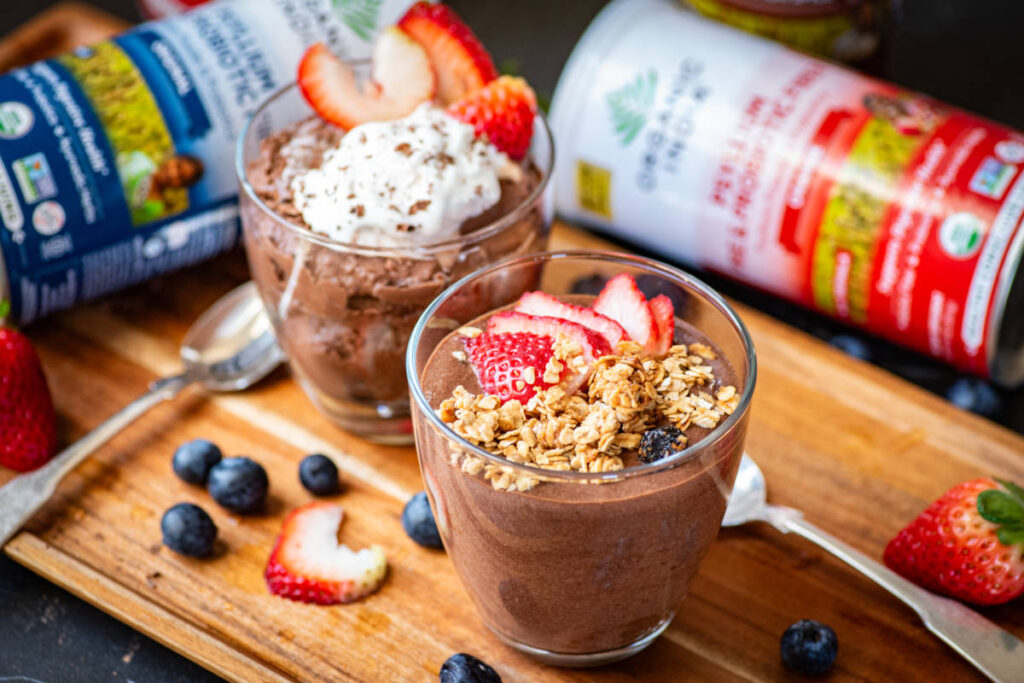
How to Choose the Right Product for Your Lifestyle
Which fiber supplement is right for you?
Psyllium is a mixture of soluble and insoluble fiber taken with water to provide bulk and help stool pass more smoothly. It’s also a natural prebiotic. In addition to supporting digestive function, it may also support cardiovascular function, satiety, and cholesterol levels as part of a heart-healthy, high-fiber diet.
Psyllium powder is mixed with water and forms a gel-like substance or taken as a capsule. It’s also a fantastic egg substitute and texturizer in baking, like in this Easy Vegan Gluten-Free Bread with Psyllium. Not everyone likes the texture of psyllium, and may prefer psyllium capsules or prebiotic gummies. Psyllium also requires increasing water intake.
Fiber gummies don’t require mixing in water and are more convenient to take than psyllium, but less versatile. They also provide only soluble fiber but offer the same prebiotic benefits.
Both types of fiber supplement may require an adjustment period, so start slow and increase gradually. The best option for you depends on your personal preferences, health goals, and how you digest fiber.
FAQs: Fiber Without the Flatulence
There’s a lot to learn about how to increase fiber without causing unwanted symptoms, like flatulence. So let’s answer some FAQs.
- How long does it take to adjust to a high-fiber diet?
It depends on the individual, their lifestyle, existing health conditions, and how gradually they incorporate more fiber.
Some people may adjust within two to three weeks, while others may need a month or two to adapt. Check with your healthcare practitioner for individual recommendations.
- Can I combine different types of fiber supplements?
Check with your healthcare practitioner, but in general, yes, it’s safe to combine more than one type of fiber, such as psyllium and fiber gummies.
However, since most of your fiber should come from whole foods, one fiber supplement should be sufficient.
- Is bloating a sign I’m doing something wrong?
Not necessarily, but it usually suggests you may be increasing your fiber intake too quickly or not drinking enough water.
Try slowing down and increasing hydration to ease bloating.
- What’s the best fiber source for sensitive stomachs?
When started slowly and with plenty of water, psyllium is considered a gentle fiber supplement for sensitive stomachs.
Prebiotic fiber may also be appropriate, but check with your healthcare practitioner if you have a digestive health issue first.
Gentle food-based sources include cooked and peeled or blended vegetables and fruits, which have less insoluble fiber.
- Can I take fiber supplements with other medications or vitamins?
Fiber supplements are best taken at least two hours apart from vitamins and minerals, as they can affect absorption.
Fiber supplements may also be contraindicated with certain medications or require separate dosing, so ask your healthcare practitioner for individual recommendations.
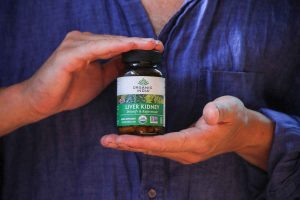





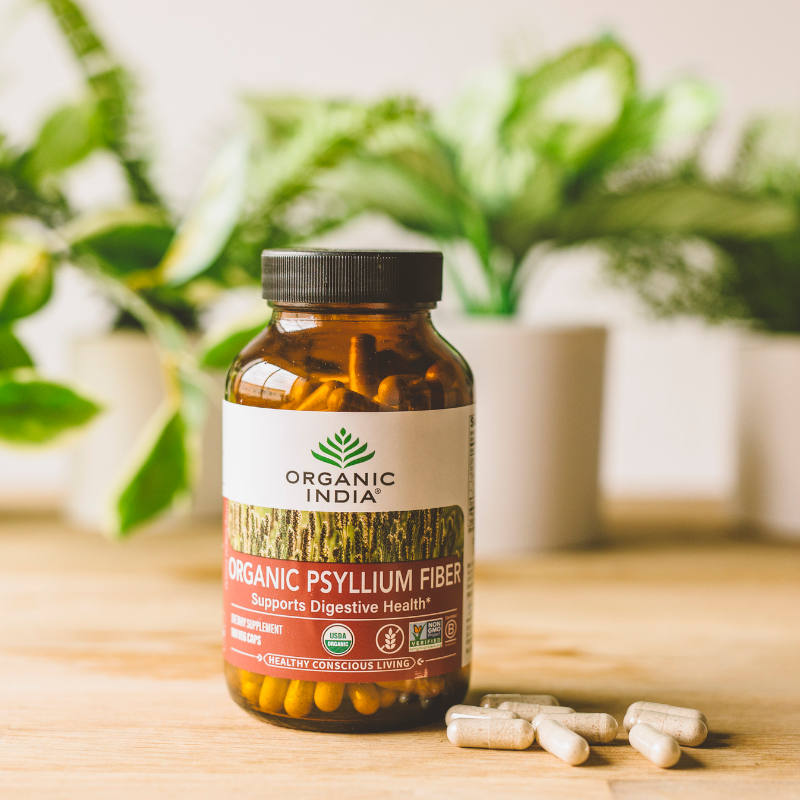
 Kristen Boye is a freelance natural health and green living writer, copywriter, and editor. Kristen was raised on an organic farm in British Columbia which inspired her life’s work. She holds a Bachelor’s Degree in Natural Health, is a Certified Natural Foods Chef, a medicinal herb farmer, natural foods advocate, and is obsessed with writing, homesteading, researching, regenerative agriculture, and words in general. Kristen lives with her husband and two children on their medicinal herb farm in Western North Carolina. Visit her online at:
Kristen Boye is a freelance natural health and green living writer, copywriter, and editor. Kristen was raised on an organic farm in British Columbia which inspired her life’s work. She holds a Bachelor’s Degree in Natural Health, is a Certified Natural Foods Chef, a medicinal herb farmer, natural foods advocate, and is obsessed with writing, homesteading, researching, regenerative agriculture, and words in general. Kristen lives with her husband and two children on their medicinal herb farm in Western North Carolina. Visit her online at: